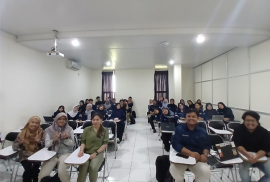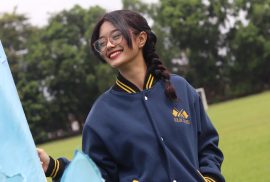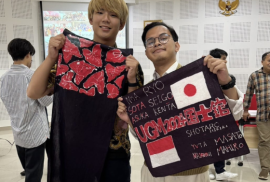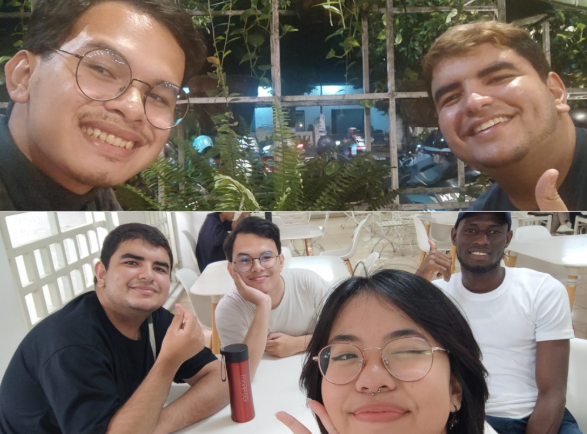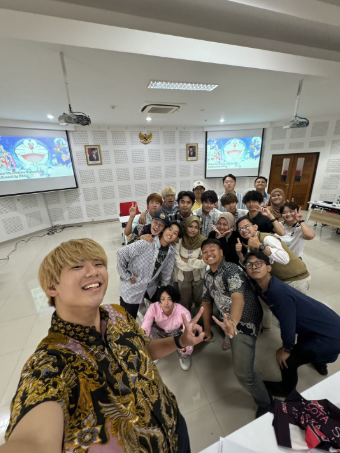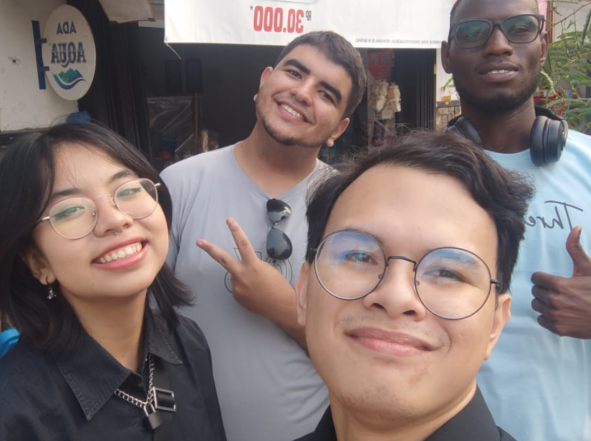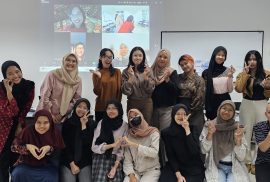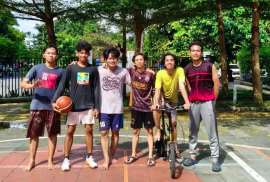The implementation of the Productive Javanese Writing Course in the even semester of the 2024/2025 academic year at the Javanese Language, Literature and Culture Study Program, Faculty of Cultural Sciences, Universitas Gadjah Mada (FIB UGM), presents a different learning atmosphere from previous years. Batch 2024 students get direct assistance from Wikimedia members in learning article writing, especially in Javanese.
The collaboration between the Javanese Language, Literature and Culture Study Program and Wikimedia took place from Tuesday, May 6, 2025 to Tuesday, June 3, 2025. Through this collaboration, students not only learn the basics of article writing, but also get an in-depth understanding of the world of Wikipedia, including the structure and language style of article writing, things that are not allowed in writing on Wikimedia, and an introduction to the Wikimedia organization in Indonesia. The students even had the opportunity to write articles directly in Javanese.
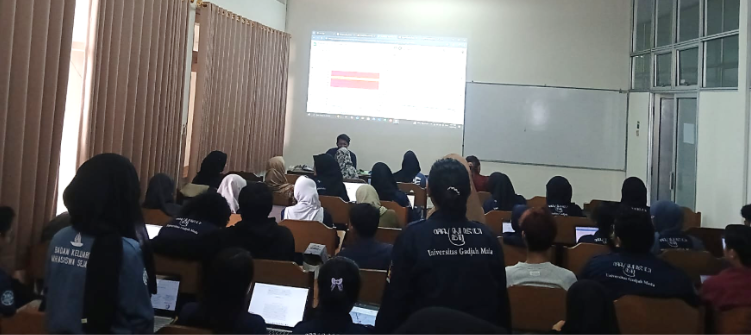
During the program, two Wikimedia members, Mbak Ana and Mbak Hanifah, accompanied the students in learning activities. Based on an online interview on June 12, 2025, one of the course participants, Wreksi Awinanggya Pinandhita, said that this activity was considered very useful because it provided concrete provisions in writing, especially writing articles in Javanese.
Overall, this collaboration is considered to provide valuable experience for students. In addition to enriching writing skills, this activity also broadens students’ insights into the world of article writing in the context of local culture. Through the ability to write articles in Javanese, students actively contribute to reintroducing regional culture to a wider audience.
Author: Haryo Untoro
Editor : Haryo Untoro

